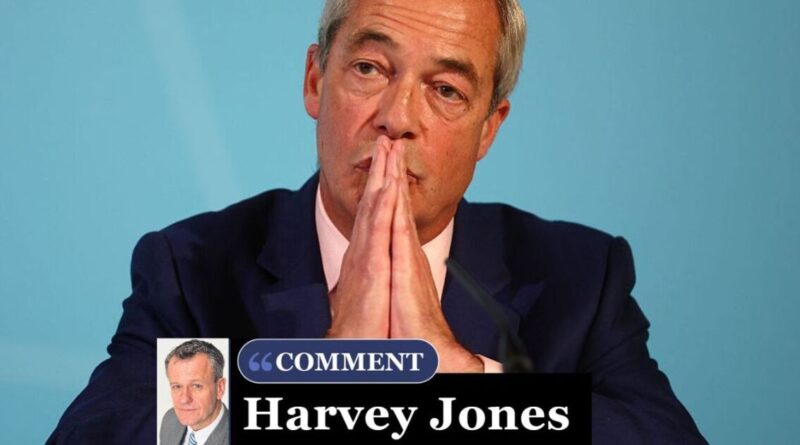Nigel Farage ready to be PM – but he must answer one brutal question | Personal Finance | Finance
Reform UK continues to climb in popularity, gaining three points in just over a week to hit a new high of 33%. Labour trails at 20%, with the Tories languishing on 19%. Figures like that no longer shock. Farage is consolidating his support and winning councils, and if he keeps this up into an election year, he could sweep into Downing Street.
There’s still a long road ahead. Labour can delay the next election until August 2029, which feels a lifetime away. An awful lot can happen between now and then, and given the crazy state of the world, almost certainly will.
The Tories are down but not out, as Kemi Badenoch’s punchy conference speech and sparky plan to scrap stamp duty showed.
But right now, Farage is the big hitter, landing blow after blow on a Labour leader already on the ropes.
Unlike Sir Keir Starmer, Farage knows how to connect with voters. He talks like your mate in the pub, while the PM sounds like a speak-your-weight machine.
Farage has another edge: he isn’t in power yet, so can promise voters the earth without having to hand it over next day.
Unlike Rachel Reeves, Farage and Richard Tice don’t have to write a November Budget or balance the books.
They haven’t got the bond market, Treasury mandarins or the Office for Budget Responsibility (OBR) breathing down their necks.
When they throw out numbers, they don’t really have to add up. Yet.
Lately, Farage has thrown out a lot of numbers.
Farage has floated raising the personal tax allowance from £12,570 to £20,000, lifting millions out of income tax altogether.
The Institute for Fiscal Studies reckons that would cost between £50billion and £80billion. Hardly small beer.
Proposals to abolish business rates, restore winter fuel payments, lift the two-child benefit cap and boost health and defence budgets could cost £50billion on top.
To fund this, Reform promises a £50billion bonfire of the quangos. But politicians have been promising that for decades, without once locating the matches.
Farage reckons scrapping net zero subsidies would save £30billion a year for the next 25 years. The OBR puts the figure closer to £10billion.
Behind all this Farage also needs to face one brutal question: is he a small-state crusader or a big-state spender? It’s brutal because the answer isn’t clear.
In his early years he was pure Thatcherite, railing against bloated bureaucracy and welfare. Now he’s edging towards a more generous state, pledging cash for public services voters love. He can’t do both.
At some point, he has to pick a side.
Farage is brilliant at asking the right questions. He gave voice to people’s doubts and fears over the EU and the small boats landing on our shores.
In doing so, he’s transformed British politics. But that was from the sidelines. As he edges closer to power, he’ll have to come up with credible answers too. Ones that work.
Farage says Reform will show its numbers next year. Fair enough. There’s time. But he’ll need to follow through, and make sure the sums really add up. He may not be your mate in the pub for long. Soon he might be in power. But he needs to show us some clear and sober sums first.





